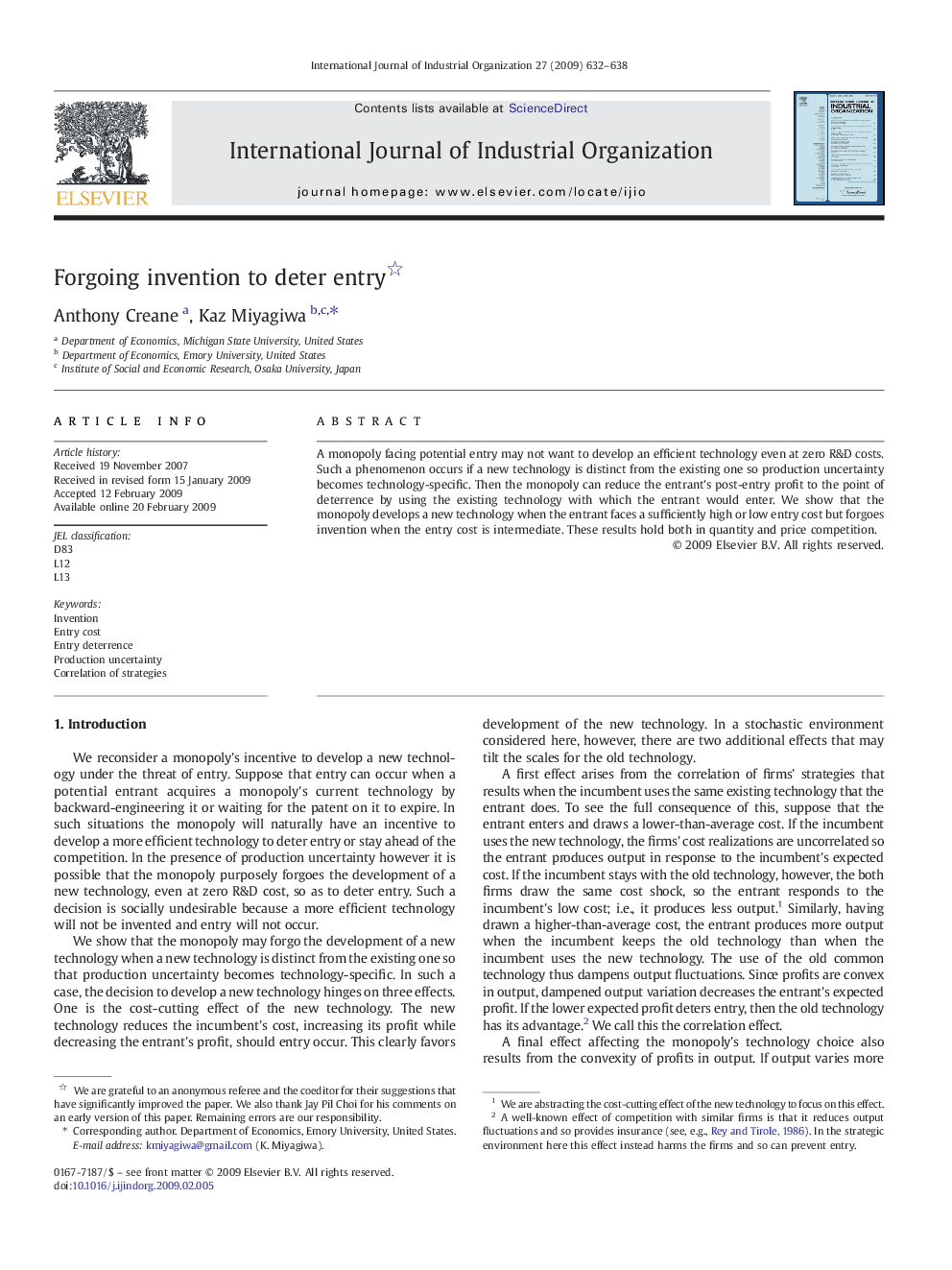| Article ID | Journal | Published Year | Pages | File Type |
|---|---|---|---|---|
| 5078337 | International Journal of Industrial Organization | 2009 | 7 Pages |
Abstract
A monopoly facing potential entry may not want to develop an efficient technology even at zero R&D costs. Such a phenomenon occurs if a new technology is distinct from the existing one so production uncertainty becomes technology-specific. Then the monopoly can reduce the entrant's post-entry profit to the point of deterrence by using the existing technology with which the entrant would enter. We show that the monopoly develops a new technology when the entrant faces a sufficiently high or low entry cost but forgoes invention when the entry cost is intermediate. These results hold both in quantity and price competition.
Related Topics
Social Sciences and Humanities
Economics, Econometrics and Finance
Economics and Econometrics
Authors
Anthony Creane, Kaz Miyagiwa,
